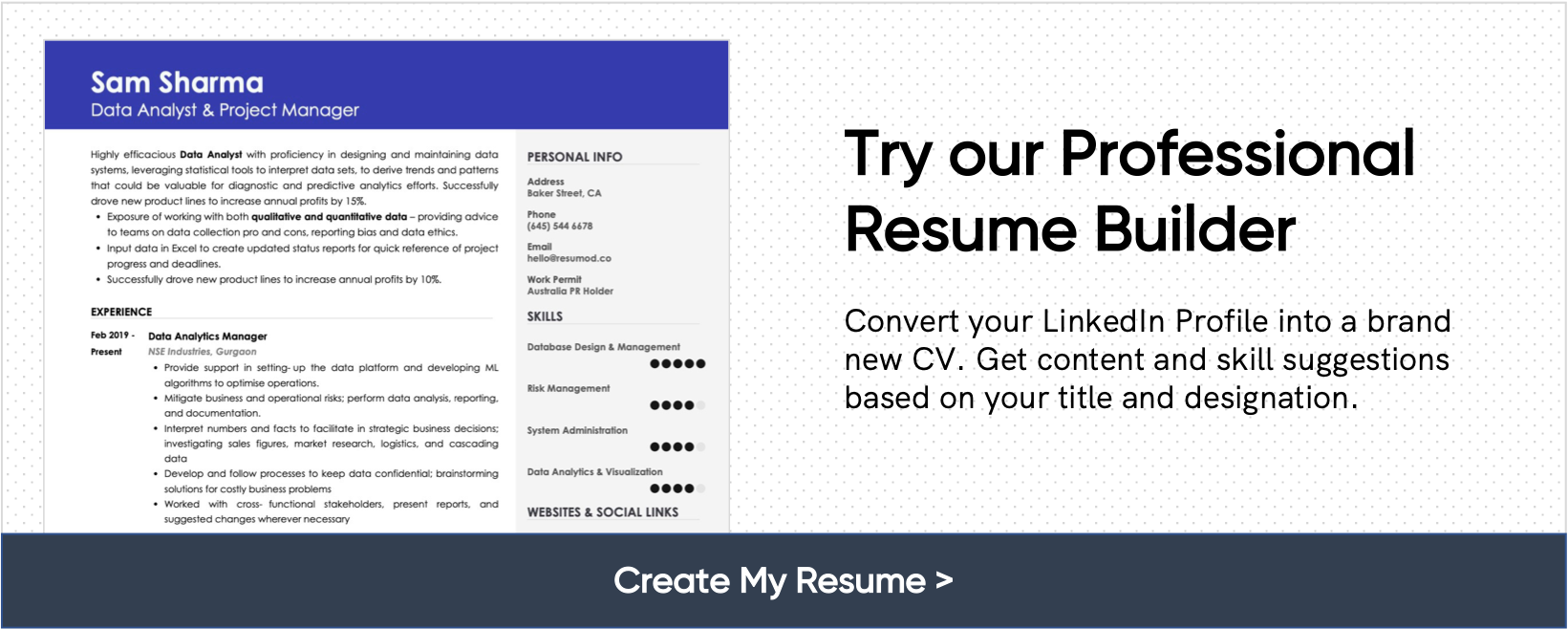How to Become a Machine Learning (ML) Engineer in 2024
Join us as we explore the path to becoming a part of this exciting field, shaping the future of a machine learning expert.
Over the last decade, machine learning has stood at the forefront of technological innovation, driving unprecedented change across industries and reshaping the job market. The U.S. Bureau of Labor Statistics underscores this transformation, projecting a significant 23% growth in employment for computer and information research scientists, including machine learning experts, from 2022 to 2032—a pace substantially faster than the average across all fields. This growth highlights the burgeoning demand for skilled professionals and signals the strategic importance of machine learning expertise in the contemporary economy.
As we delve into the nuances of becoming a machine learning expert in 2024, we recognize that this journey is about more than mastering algorithms and coding skills; it's about understanding the broader implications of AI and preparing to innovate in a world where machine learning is ubiquitous. Whether you aim to advance scientific research, drive business innovation, or tackle some of society's most pressing challenges, a career in machine learning offers a unique combination of impact, intellectual fulfilment, and career opportunities. Join us as we explore the path to becoming a part of this exciting field, shaping the future of a machine learning expert.
- What is machine learning and its relevance in the present day?
- Who can be a machine learning expert?
- Understanding the role of a machine learning (ML) expert
- How to make your resume stand out as an ML expert
- Top-rated Machine Learning (ML) resumes on Resumod
What is Machine Learning And Its Relevance in the Present Day
Machine learning is a subset of artificial intelligence (AI) that focuses on the development of algorithms and statistical models that enable computers to perform tasks without being explicitly programmed. Instead of relying on explicit programming, machine learning systems learn from data, identify patterns, and make predictions or decisions.
Machine learning experts are the new architects in a world increasingly powered by data, constructing algorithms that enable machines to learn from and make decisions based on vast datasets. This capability is crucial across various sectors, from healthcare, where predictive models can save lives, to finance, where they can detect fraudulent activities, and even to environmental science, where they can help combat climate change. By mastering machine learning, you position yourself at the cutting edge of a field that is intellectually stimulating, rewarding, and vital to our collective future.
Who Can Be a Machine Learning Expert?
Machine learning is not confined to a single profession or academic discipline; it's a transformative tool that offers value to anyone interested in leveraging data to make informed decisions, drive efficiency, or foster innovation.
Whether you're building a career in technology, aiming to transform an industry, or simply curious about the future of AI, machine learning has something to offer you.
- Aspiring and Current Data Professionals: Data scientists, data analysts, and statisticians can significantly enhance their analysis capabilities and career prospects by incorporating machine learning into their skill sets.
- Software Engineers and Developers: Those who build applications and software systems can integrate machine learning to make their products smarter, more intuitive, and more responsive to users' needs.
- Students and Academics: Students in fields like computer science, mathematics, statistics, and engineering can gain a competitive edge in the job market by learning machine learning, while academics can leverage it for cutting-edge research.
- Industry Professionals: Experts in finance, healthcare, marketing, and manufacturing, among others, can use machine learning to uncover insights from data, improve decision-making, optimize operations, and innovate in their respective fields.
- Entrepreneurs and Business Leaders: Understanding machine learning can empower business owners and managers to drive innovation, create value, and maintain a competitive edge in the rapidly evolving digital landscape.
- Policy Makers and Ethicists: As machine learning increasingly influences various aspects of society, individuals in policy, law, and ethics need to understand the technology to contribute to discussions on regulations, privacy, and ethical implications.
Understanding the Role of a Machine Learning (ML) Expert
The role of machine learning experts is crucial in today's data-driven tech market. Using their math and programming skills, these professionals build and apply machine learning algorithms. Their work spans diverse industries, where they analyze data, improve decision-making, and enhance automation. Machine learning experts build models, optimize algorithms, and stay updated on the latest research. Effective communication is key as they collaborate across teams. As a result, these experts contribute to the evolution of artificial intelligence and its practical applications in the real world.
How to Become a Machine Learning (ML) Expert
Becoming a machine learning expert in 2024, or at any time, involves a combination of education, practical experience, and continuous learning. Here's a step-by-step guide to help you on your journey:
Step 1: Build a Strong Foundation
The first step is to acquire a bachelor's degree. Courses like BTech and BE have machine learning as a part of their curriculum. If you are already a graduate and switching your career, you can develop the foundation
- Mathematics and Statistics: Develop a solid understanding of linear algebra, calculus, probability, and statistics. These are fundamental to understanding machine learning algorithms.
- Programming Skills: Learn a programming language commonly used in machine learning, such as Python or R. Familiarize yourself with libraries like NumPy, Pandas, and scikit-learn.
Step 2: Gain Theoretical Knowledge
- Online Courses: Enroll in online courses on platforms like Coursera, edX, or Udacity. Popular courses include Andrew Ng's Machine Learning course and the Deep Learning Specialization.
- Books: Read foundational books in machine learning and deep learning. Recommended titles include "Pattern Recognition and Machine Learning" by Christopher Bishop and "Deep Learning" by Ian Goodfellow.
Step 3: Gain Practical Experience
Projects: Work on real-world projects to apply your theoretical knowledge. Platforms like Kaggle offer datasets and competitions to practice your skills.
Open Source Contributions: Contribute to open-source machine learning projects on platforms like GitHub. By doing so, you can enhance your coding skills and gain exposure to real-world situations.

Step 4: Deepen Your Understanding
- Specialize: Choose a specific area within machine learning to specialize in, such as natural language processing, computer vision, or reinforcement learning.
- Advanced Courses: Take more advanced courses on topics like deep learning, reinforcement learning, and generative models.
- Read Research Papers: Keep up with the latest research papers in machine learning and related fields. Attend conferences like NeurIPS, ICML, and CVPR to stay connected with the research community.
- Blogs and Newsletters: Follow reputable blogs and newsletters to stay informed about the latest developments and trends.
- Stay Updated: Machine learning is a rapidly evolving field. Regularly update your skills and knowledge to stay relevant.
- Online Courses and Certifications: Take advanced online courses and certifications to keep expanding your expertise.
- Consider Further Education:
- Master's or PhD: Depending on your career goals, consider pursuing advanced degrees in machine learning or related fields.
Step 5: Networking
Connect with Professionals: Attend conferences, workshops, and meetups to network with professionals in the field. Join online communities like LinkedIn groups and forums to engage with others.
Step 6: Build a Portfolio
GitHub Portfolio: Showcase your projects, code, and contributions on platforms like GitHub. This serves as a portfolio for potential employers.
Step 7: Apply for Jobs and Internships
Build a Resume: Tailor your resume to highlight your machine learning skills and projects.
Job Applications: Apply for machine learning internships or entry-level positions to gain industry experience.
How to Make Your Resume Standout as an ML Expert
- Education:Detail your educational background, including the degree earned, institution, graduation date, and relevant coursework or projects.
- Skills Section: List technical skills relevant to machine learning, including programming languages (Python, R), machine learning libraries (TensorFlow, PyTorch), and tools (Jupyter Notebooks). Highlight domain-specific skills such as natural language processing or computer vision.
- Work Experience: Focus on quantifiable achievements in your previous roles. Emphasize projects where you applied machine learning techniques to solve real-world problems. Include the name of the company, your job title, and the duration of employment.
- Projects: Create a separate section for notable machine learning projects. Describe each project, including the problem statement, methodologies employed, and the impact of your contributions.
- Certifications: Include any relevant certifications in machine learning or related fields. Mention the issuing organization and the date of completion.
- Publications or Research: If applicable, showcase any publications or research work related to machine learning. Include the title, publication venue, and date.
- Awards and Honors: Highlight any awards or recognitions received for your work in machine learning.
- GitHub or Portfolio Link: Provide a link to your GitHub profile or an online portfolio showcasing your machine learning projects and code.
Top Rated Machine Learning (ML) Resumes on Resumod
Resume of ML Engineer

Check the full resume of ML engineer in text format here.
Resume of Data Scientist

Check the full resume of data scientist in text format here
Resume of NLP Data Scientist

Check the full resume of NLP Data Scientist in text format here
Resume of Artifical Intelligence (AI) Engineer

Check the full resume of Artifical Intelligence (AI) engineer here
Resume of Deep Learning Engineer

Check the full resume of the deep learning engineer in text format here
In 2024, the demand for Machine Learning Experts (MLEs) is soaring, with a projected 23 per cent employment growth according to the U.S. Bureau of Labor Statistics. If you want to become a MLE, start by building a strong foundation followed by continuous learning and moving towards mastering theoretical concepts, gaining practical experience, and staying informed on industry trends. Crafting an impactful MLE resume is essential in this competitive job market. To stand out in the job market, highlight your education, technical skills, and real-world projects.



